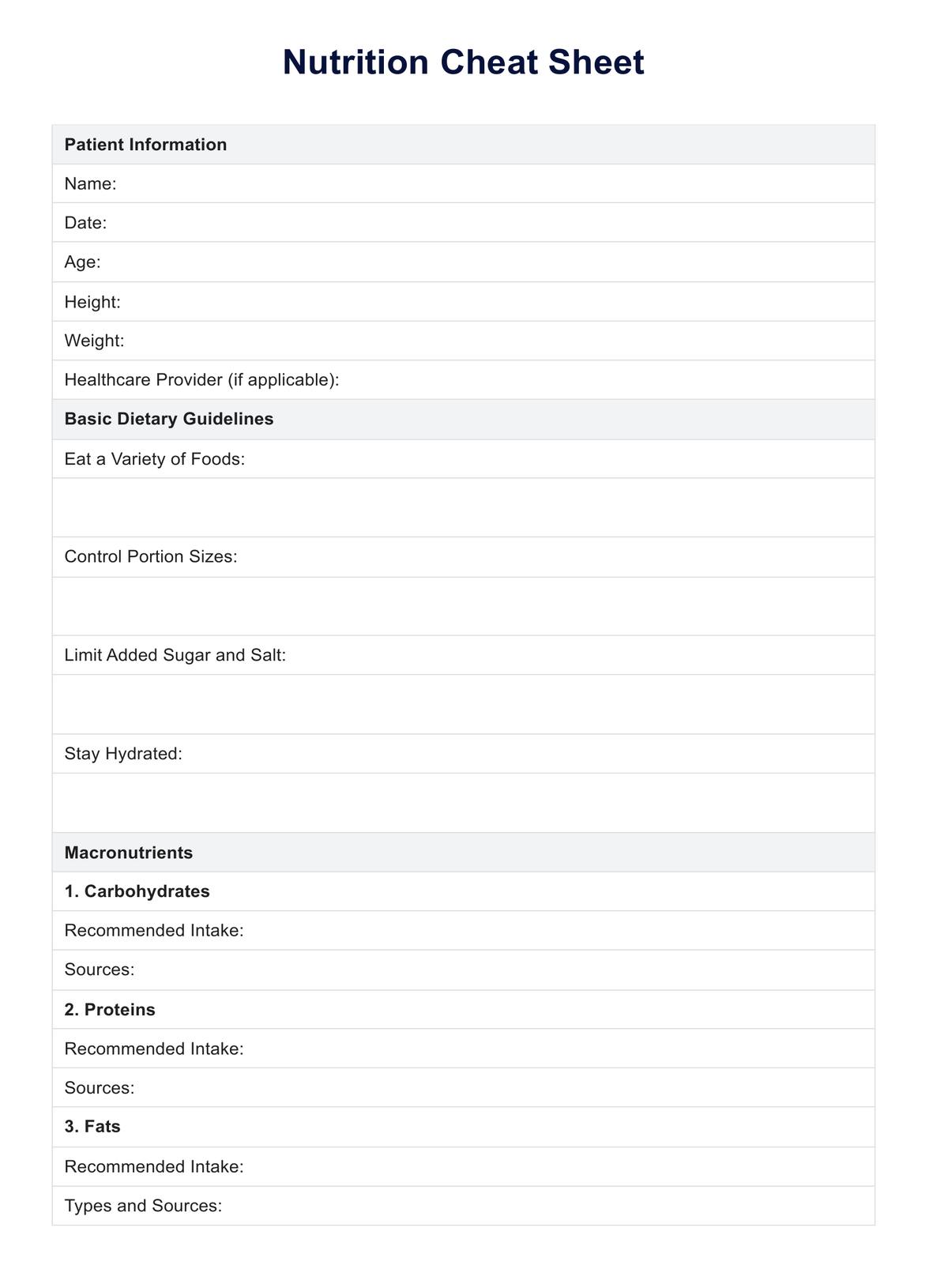Anyone looking to improve their dietary habits, including individuals aiming for weight loss, athletes optimizing performance, and those managing chronic conditions or dietary restrictions.

Nutrition Cheat Sheet
Unlock the secrets of clinical nutrition and healthy eating with our Free Nutrition Cheat Sheet. Perfect for weight loss, managing kidney disease, and more.
Nutrition Cheat Sheet Template
Commonly asked questions
You'll find a sample template to get you started. Fill it out with your nutritional guidelines, helpful tips, and food recommendations. Once completed, you can save it for your reference or share it with others.
Consider dietary goals (e.g., weight loss, muscle gain), nutritional needs (calories, macros), dietary restrictions (allergies, intolerances), and preferred eating styles (vegan, keto). Tailor the cheat sheet to be practical and achievable for the individual's lifestyle.
EHR and practice management software
Get started for free
*No credit card required
Free
$0/usd
Unlimited clients
Telehealth
1GB of storage
Client portal text
Automated billing and online payments











